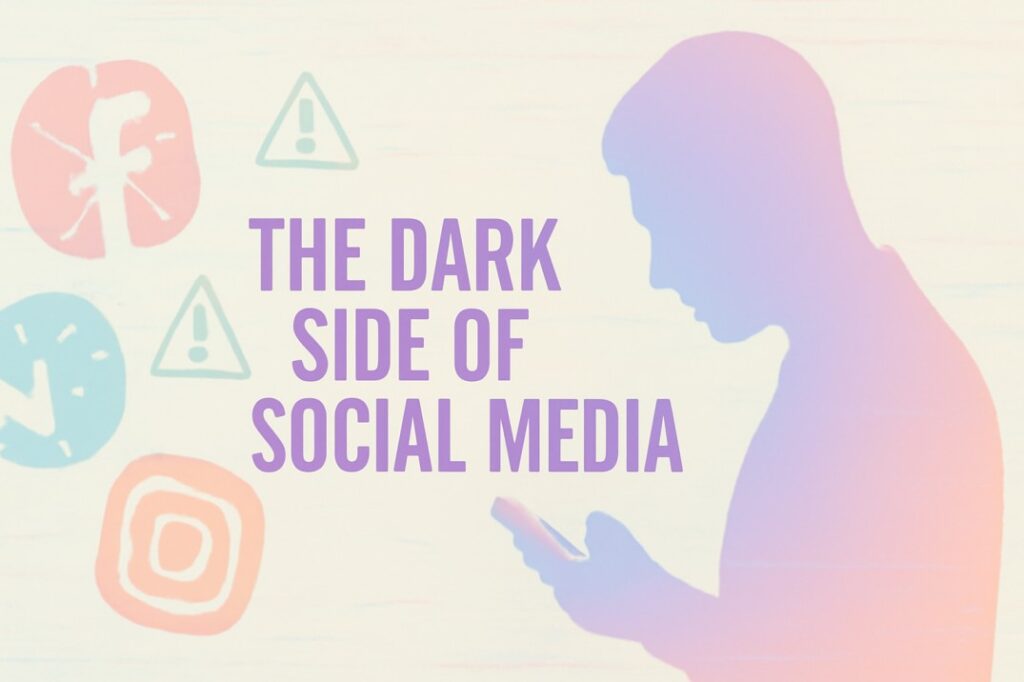Social media platforms have revolutionized the way we connect, share, and consume information. While they offer many benefits such as staying in touch with loved ones, discovering new ideas, and promoting businesses, there is a darker side that often goes unnoticed. In this article, we’ll explore the hidden negative effects of social media — from mental health issues to privacy concerns and societal impacts — and discuss how to navigate these challenges responsibly.
Mental Health Challenges: Anxiety, Depression, and Loneliness
Studies consistently show that excessive social media use can contribute to feelings of anxiety, depression, and loneliness. Platforms like Instagram and Facebook often present curated versions of life, leading users to compare themselves unfavorably. This “compare and despair” effect can damage self-esteem and increase stress.
Research published by NIH highlights the link between heavy social media use and depressive symptoms, especially among teenagers and young adults. Mindful usage, digital detoxes, and seeking professional help when needed are vital steps to protect mental well-being.
Privacy Concerns and Data Exploitation
Many users are unaware of how much personal data social media companies collect. This data is often used for targeted advertising, but it can also be vulnerable to breaches or misuse. Scandals like the Cambridge Analytica case revealed how data was harvested without consent to influence political processes.
Protecting your privacy means regularly reviewing app permissions, limiting personal information shared online, and using privacy settings effectively. Resources such as Electronic Frontier Foundation offer practical guides on safeguarding your digital footprint.
Spread of Misinformation and Echo Chambers
Social media’s algorithms prioritize engagement, which can lead to the rapid spread of misinformation and “fake news.” This contributes to polarized communities or echo chambers where people only see opinions that reinforce their beliefs.
Being critical of sources, cross-checking facts, and following diverse viewpoints can help combat misinformation. Trusted fact-checking sites like Snopes and FactCheck.org are valuable tools for verifying content.
Cyberbullying and Online Harassment
The anonymity and distance of social media sometimes encourage negative behavior such as cyberbullying and harassment. Victims can suffer significant emotional distress, which may lead to severe mental health issues.
Most social platforms now offer tools to report abuse and block offenders, but it’s crucial to foster a culture of kindness and respect online. Organizations like StopBullying.gov provide resources for victims and bystanders alike.
Impact on Productivity and Attention Span
Endless scrolling and notifications can significantly disrupt focus and productivity. Many users report spending more time than intended on social media, which can lead to procrastination and decreased performance at work or school.
Techniques like setting app time limits, turning off non-essential notifications, and using productivity apps such as Freedom can help manage distractions and improve time management.
How to Navigate Social Media Responsibly
Awareness is the first step toward healthier social media habits. Balance your online and offline life, curate your feeds to include positive and educational content, and remember that what you see is often a highlight reel, not the full reality.
Consider regular breaks, engage in real-world interactions, and prioritize mental health. By using social media mindfully, you can enjoy its benefits while minimizing the risks.
Final Thoughts
While social media connects the world in unprecedented ways, its darker aspects cannot be ignored. Understanding these challenges equips us to use these platforms more wisely and protects our well-being in a digital age.
For further reading on digital wellness, visit Common Sense Media and Digital Wellbeing.


